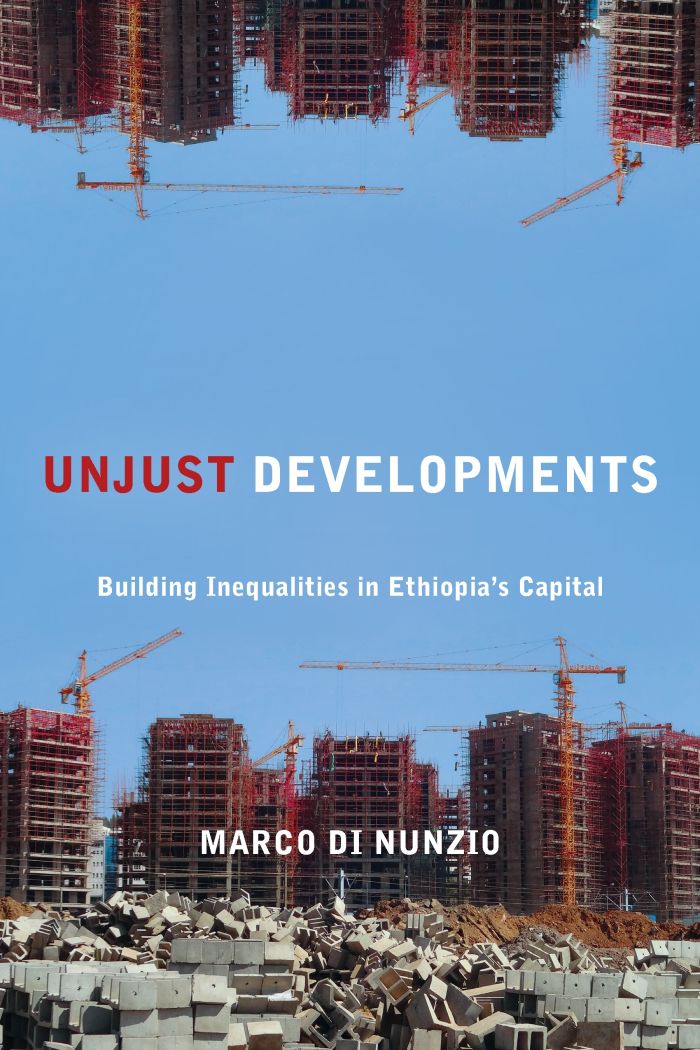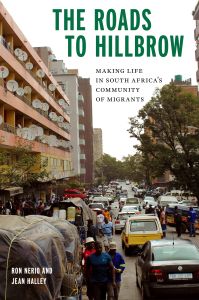Unjust Developments
Building Inequalities in Ethiopia's Capital

This book can be opened with

Why does injustice often deepen during moments of rapid urban growth? And what does the pursuit of more just urban futures looks like when the realization of alternatives seems impossible?
African cities have boomed over the last two decades. Large-scale infrastructure projects, high-rises, and real estate ventures have transformed urban landscapes. While urban poverty levels have declined, rising housing costs, stagnant wages, and forced evictions—twinned with political authoritarianism—have intensified precarity and injustice.
Drawing on more than a decade of ethnographic research in construction sites, design offices, and new developments, anthropologist Marco Di Nunzio narrates the tensions animating the urban transformation that has reshaped Addis Ababa, Ethiopia’s capital, beyond recognition.
Unjust Developments reminds us that city building in Addis Ababa, as elsewhere, is not only about economic accumulation. It is a moral project, rooted in the belief that modern infrastructure will generate opportunity and uplift the poor. These promises have often failed the poor. Commitments to infrastructure have given political leaders, investors, planners, developers and architects the leverage to prioritize their own visions of development and dismiss demands for better wages and affordable housing as politically irrelevant or economically unviable. Government and corporate investments in the built environment have helped entrench unequal hierarchies of entitlement and rights.
Yet city building remains a fragile achievement. It is marked by struggles not only between developers and displaced communities, or companies and workers, but also among the city builders themselves. Demands for a more just city and frictions within the building industry open space for rearticulating what counts as political necessity, moral action, expertise, and the future of development.
In conversation with critical urbanism, anthropology, and moral philosophy, Unjust Developments offers a powerful account of city building as both a site of injustice and a terrain of struggle—where justice is not guaranteed, but persistently demanded.
This book is an outstanding achievement. It makes a major contribution to knowledge on the dynamics driving urban change and redevelopment in cities of the Global South. It does this by focusing on the author’s long-term ethnographic fieldwork in Addis Ababa, Ethiopia, and draws on his observations, experience, and ethnography in the city over 12 years or so, when the city was at the height of a construction boom.—Claire Mercer, Professor of Human Geography at the London School of Economics and Political Science and author of The Suburban Frontier: Middle Class Construction in Dar es Salaam
This is an important and singular work in urban studies. While there are many books on urban infrastructure and the political economy of the built environment, Di Nunzio’s manuscript covers the different modalities, actors, scales, and narratives of a construction boom in an African city, which represents something unprecedented in African urban history. The event and the analysis is well matched in terms of their singularity.—AbdouMaliq Simone, Senior Professorial Fellow at the University of Sheffield and author of The Surrounds: Urban Life Within and Beyond Capture




